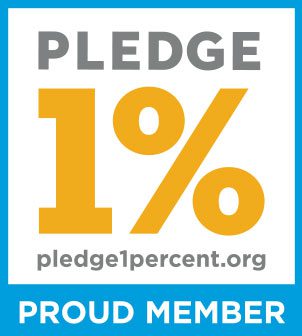Fundraising strategy consultants help develop and execute campaigns with your donors in mind. They can be the difference between your campaign’s success or failure, so selecting the right one should be a scrutinous process.
Here are a few things you should consider:
They Should Understand Your Cause
Fundraising consultants are as diverse as nonprofits themselves. Make sure you’re working with one who has a successful track record in your field. Here are a few questions you should ask them:
- What other nonprofits have you served in my sector?
- What is your consulting approach or methodology?
- What types of events or campaigns have you conducted in the past? What were their results?
- Do you have case studies or a portfolio I look at?
- To you, what makes an event or campaign “successful?”
Collaboration is key
A fundraising strategy consultant must collaborate with your existing leadership and development team to create a realistic and attainable campaign strategy. They should meet you where you are and go from there. They should be aware of your goals and create a roadmap to achieve them, highlighting milestones along the way.
If your 2022 goal is to increase your annual donation rate by 30%, your consultant will want to analyze your past events and campaigns to determine what’s working, what isn’t, and what can be improved. This process often involves applying the Pareto Principle, where 80% of outcomes stem from 20% of the work. Fundraising strategists can identify where you’re most productive and hone in on that to achieve your goals.
Fundraising Strategy Needs to be Feasible
If your fundraising strategist has million dollar ideas and your budget is $20,000, there will be disconnects in the communication, collaboration, and implementation stages of your endeavor.
We recommend conducting a feasibility study before jumping into a campaign. This study will determine if your campaign goals are attainable, and if your project or event is aligned with the interests of your donors and other stakeholders.
Feasibility studies further underscore the importance of collaboration. The fundraising consultant you hire needs to know the strengths and weaknesses of your organization. It’ll help them determine what your goals should be and which KPIs are relevant.
They’ll also get to know your stakeholders better. They’ll gain crucial insights about their interests, giving capacity, and connections. Since your stakeholders are often invaluable, they need to be onboard with the project(s) you’re looking to implement.
Fundraising Consultants Need to Know Implementation
Consultants need to know how to create a fundraising strategy. Whether your event is in-person, virtual, or hybrid, the checklist is relatively similar:
- Determine budget and timeline
- Identify goals and KPIs
- Identify fundraiser type
- Determine fundraiser location or platform
- Determine how donors can donate
- Create offerings to encourage donations at specific levels
- Create a promotional strategy
- Determine audience engagement
- Rehearse
- Launch
- Say “Thank You”
- Conduct Follow-ups
This checklist is pretty straightforward, but implementing it can be deceptively difficult. Nonprofits can make mistakes in any of these categories—and many of them do.
While events are seldom seamless, fundraising consultants should know where the common pitfalls are and have a plan for avoiding them. Don’t hesitate to ask a consultant what mistakes they’ve made in the past and how they’ve learned from them. Everyone’s made mistakes. It’s how we grow. If they’re unable to answer this question, that’s a red flag.
Another red flag in the implementation stage is poor communication. A lot happens in these stages, especially shortly before and during a launch. Unclear communication can lead to substantial mishaps and spell disaster for your event or campaign.
They Should Also Know Marketing
Many fundraising strategists don’t delve into marketing. In fact, we’re the only team that provides both fundraising strategy and digital marketing for nonprofits at this level.
Having expertise in both allows consultants to engage donors and participants with consistent and effective storytelling. They already know the most vital aspects of your organization and your campaign, and how to leverage them.
To learn more, send us a message.



0 Comments